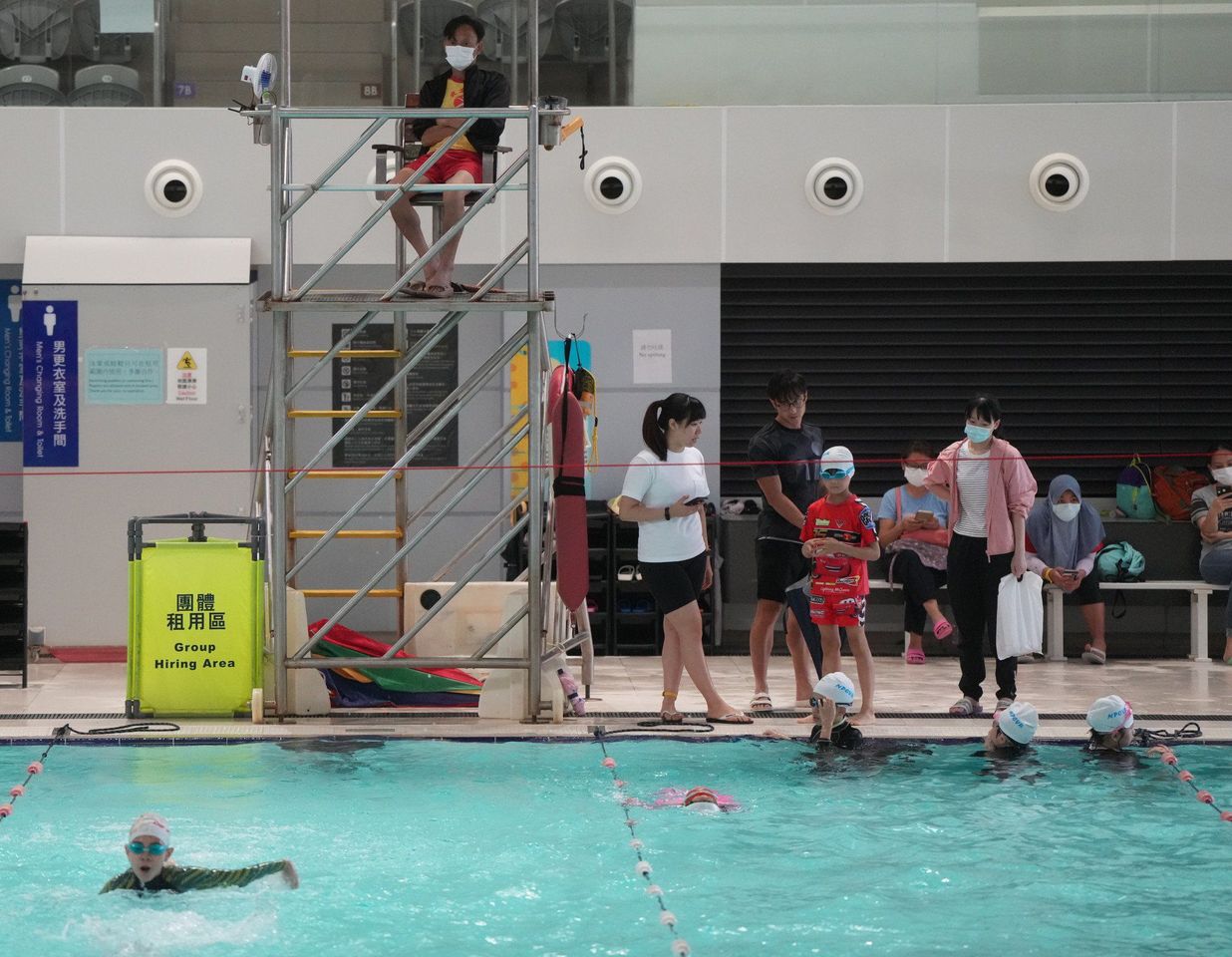Hong Kong News

20 Hong Kong public pools to close lanes, facilities due to lifeguard shortage
Nearly half of Hong Kong’s public pools intend to close lanes or facilities reserved for swimming instruction this summer, union representatives have said, sparking fears of class cancellations amid a shortage of lifeguards.
The Hong Kong Recreation and Sports Professionals General Union on Tuesday said 20 out of the city’s 45 public pools had told swimming clubs that they could not operate all of their facilities, without providing a reason.
“Besides affecting industry development and swimmers, opening partially will also affect the city’s sports development,” warned Lee Yuet-man, chairman of the union.
“Training and basic classes for swimming teams cannot take place when pools are unavailable for use.”
 The Victoria Park Swimming Pool in Causeway Bay. Salaries for public
lifeguards start at HK$17,675 per month and are capped at HK$24,500.
The Victoria Park Swimming Pool in Causeway Bay. Salaries for public
lifeguards start at HK$17,675 per month and are capped at HK$24,500.
Last Monday, the Leisure and Cultural Services Department said it had struggled to hire seasonal lifeguards for the summer, as only 240 out of 600 had reported for duty, suggesting that the government had not reached its hiring target for all public aquatic venues to open next month.
As of May, 17 out of 45 public pools were operating part of their facilities, with three under maintenance or reconstruction, according to the department.
The union warned that children would be affected if lessons were cancelled and other pool users could possibly have to wait in queues before they could enter the water.
Lee said swimming clubs would be notified of their time slots four months before the pools opened, but there was no guarantee that classes could be held.
“Procedurally, slots will be drawn and you’ll be notified, but if there’s no lifeguard on the day for the government to rent out the pool, there won’t be a refund,” he said, adding that clubs usually did not have to pay in advance due to the possibility of last-minute cancellations.
Lee said secondary pools such as those for training and diving were particularly susceptible to closures, adding that some facilities might choose to open the main pool instead, where floating devices were banned.
Eddy Lau Tak-hung, secretary of the union and a full-time swimming instructor, noted beginners had gone without lessons for three years when facilities closed during the Covid-19 pandemic.
“Those who wished to learn how to swim between the ages of three and five had to wait until they were seven or eight to begin lessons,” he said.
The union urged the government to allow schools and training centres to use the pools even when no lifeguards were available, on the condition that such organisations ensured a qualified person would be on site.
“All swimming coaches must have life-saving qualifications in order to teach. That’s why swimming classes can take place in public pools when they are closed from noon to 1pm,” Lau said, urging authorities to adopt the same approach when it came to club bookings during operation hours.
The union warned that modest salary increases would not help tackle the shortage of lifeguards, as the private sector offered more competitive pay.
It urged the government to revamp its salary structure and pave a longer career path for lifeguards to attract new talent.
Currently, public lifeguards are classified as artisans on the civil service pay scale. Their salaries start at HK$17,675 (US$2,260) per month and are capped at HK$24,500.
The union said private swimming pools in residential buildings and hotels would offer much more with salaries often starting at HK$24,000 per month for both full-time and temporary lifeguards.
A department spokesman said finding enough lifeguards had been a challenge over the past few years due to increased demand in the private sector and the suspension of training courses due to the pandemic.
“As the supply of lifeguards is insufficient in the market, it has been hard for the department to employ enough seasonal lifeguards to cope with services during the swimming season,” he said.
The department noted it had improved pay and sponsored lifeguards exam fees, and pledged to make a better effort to recruit members of ethnic minorities.











